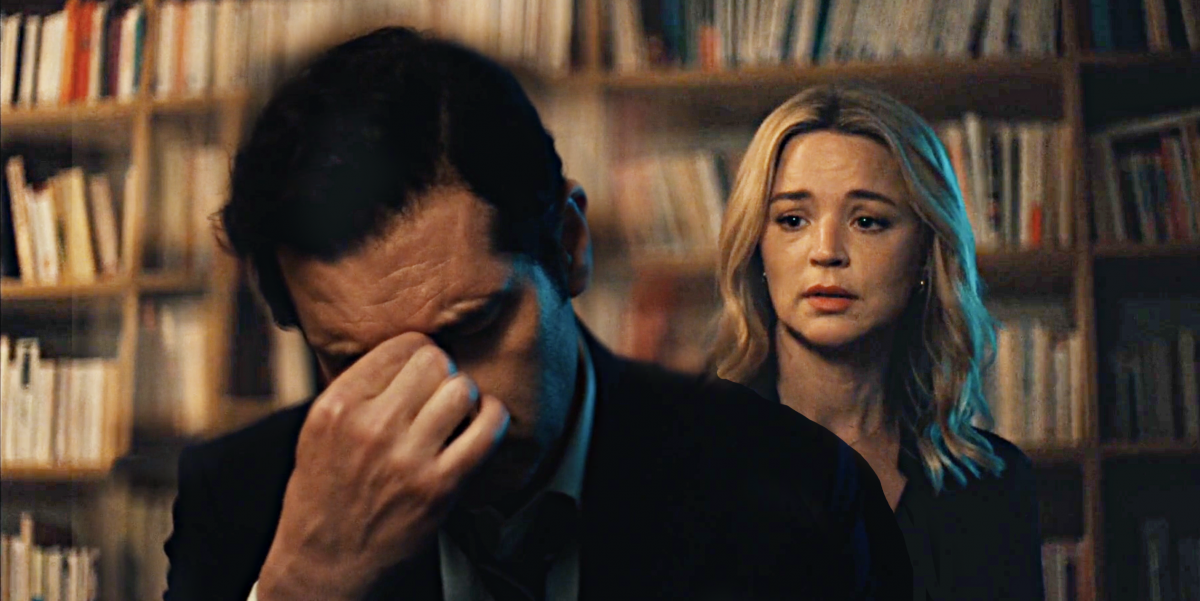
Domestic abuse is a provocative topic for drama. The control of one person over their significant other goes to our essential notion of individual freedom. So, it’s useful to think about how a French movie might treat the subject differently from one produced in the US.
The occasion for this is Valérie Donzelli’s entirely watchable new film Just the Two of Us. That’s not meant as faint praise: I was stuck to the screen for the whole runtime. But in the end, I felt a little…undernourished by what I’d been shown. This may be the difference between Gallic and American film expectations, but it also implies an acceptance of spousal dominance in polite society.
In Just the Two of Us, Blanche is an intelligent, accomplished woman and a teacher who happens to be unattached romantically when her twin Rose fixes her up with Grégoire. He remembers Blanche from school; she does not remember him. He comes on as a charming and ingratiating (if ordinary) fellow who dotes on her and wins her heart. They marry and start a family, but cracks show almost immediately. He wants Blanche to himself and convinces her to move away from her sister and mother. He puts her on a rigid schedule, calls repeatedly while she’s in class, and stalks her at work. He turns her life into “a complete wasteland,” devoid of personal agency. This toxicity continues until Blanche seeks some kind of recourse.
If this were a US film instead of a French one, one can imagine it lurid and violent. Americans expect violence to beget violence as a catharsis. In 1977’s The Burning Bed, Farrah Fawcett Majors literally sets Paul Le Mat (remember them?) on fire. In Enough (2002), Jennifer Lopez solves her trauma by kicking the shit out of her husband, Billy Campbell.
Just the Two of Us—original title L'amour et les forêts (Love and Forests)—plays down exploitation almost to blandness. Its attitude seems to be that this is just how some marriages evolve. Just the Two of Us is not a thriller, exactly. Comeuppance is in short supply. The film is compelling due to the performances of Virginie Efira, who plays both Blanche and Rose and Melvil Poupaud as Grégoire. His spousal control is portrayed as the obsession of a needy man caught between adolescence and adulthood; his psychosis plays down. Both actors are excellent and, as I’ve said, watchable.
Anyone who has had experience with domestic abuse will recognize the signs sooner than Blanche does (or chooses to), but they’re all there, including Grégoire’s refrains of “If you loved me a little, you’d have never let me treat you like that,” and “How can you love me and turn me into a monster?”
An intriguing scene has Grégoire acting out in front of a stranger and then attempting to stare that woman down. They recognize each other’s type. The woman is a stranger to him but no stranger to domestic abuse. When he’s gone, she wryly asks Blanche, “Who’s the little man?”
The device of Blanche and Rose being twins comes to little effect. The point is made that both siblings come from a strong mother and are not easily manipulated, but the narrative opportunities of twin-dom are not explored. Rose’s role in the plot could be accomplished by a sister of any status, a sympathetic friend, or, for that matter, no one at all. Ms. Efira does a valiant job of portraying both women, but the difference ultimately comes down to bangs or no bangs.
It’s directed by Valérie Donzelli, a prolific French actor, so much so that she plays herself in the Netflix series Call My Agent. She’s directed several shorts, TV episodes, and feature films, including Notre Dame (2019) and Nona et ses filles (2021).
_______________________________________________
Just the Two of Us. Directed by Valérie Donzelli. 2023. From Music Box Films. 105 minutes. Streaming, on VOD, and DVD.
